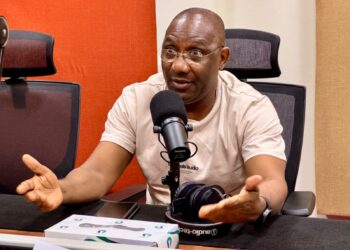Kwaku Asare, a United States-based Ghanaian professor and private legal practitioner, has proposed a comprehensive framework to tackle corruption in Ghana.
Asare, in a statement shared on his Facebook page, emphasized that fighting corruption is not merely about confronting individuals but rather about safeguarding the soul of the nation. According to Asare, corruption undermines trust, wastes resources, and impedes national development. To effectively combat this menace, he calls for bold, immediate measures aimed at enhancing transparency, accountability, and integrity across all sectors of governance.
Among the key proposals outlined by Asare are:
Immediate Asset Declaration and Publication: Public officials should declare their assets when assuming office and upon leaving. For true transparency, these declarations must be published and accessible for public scrutiny.
Specialized Corruption Courts: Establish dedicated courts to handle corruption cases swiftly, avoiding endless adjournments and procedural delays, which often hinder timely justice.
Ethical, Competent, and Apolitical Judges: Corruption courts should be staffed with highly trained, impartial judges who are free from political influence and committed to fairness and professionalism.
A Culture of Compliance: Promote a national culture where ethical behavior is the norm, beginning with adherence to basic laws such as traffic regulations, to instill integrity at all levels.
Ban on Sole-Sourcing Procurement: Sole sourcing in public procurement should be prohibited, with competitive bidding becoming the standard to reduce favoritism and corruption.
Lifestyle Audits: Regular lifestyle audits of public officials should be conducted to identify discrepancies between declared assets and observable living standards, acting as a deterrent to corrupt practices.
Sunshine Policies: The government should publish details of contracts, procurement, and spending records, promoting transparency and enabling public oversight.
Streamlined Responsibilities Among Anti-Corruption Agencies: Clear definitions of roles for agencies such as EOCO, OSP, and CHRAJ would enhance coordination and eliminate inefficiencies in the fight against corruption.
Comprehensive Anti-Corruption Legislation: Strengthen anti-corruption laws by broadening the definition of corruption-related offenses to include money laundering, tax evasion, and other financial crimes.
Strengthening Preventive Controls: Strengthen systems and controls to prevent corruption before it occurs. This includes decisive actions based on findings from the Auditor General’s reports to prevent malfeasance from recurring.
In closing, Asare expressed his belief that corruption is not an insurmountable challenge and that with the right leadership and collective effort, Ghana can overcome it. He called for a genuine commitment to these proposed actions, which, he argues, will rebuild public trust, ensure better use of national resources, and foster sustainable development. Asare concluded by reaffirming the commitment of his group, GOGO, to make this vision a reality.
“With courage, leadership, and collective effort, we can create a country where integrity thrives and corruption is no longer a barrier to our progress,” he said.










Discussion about this post